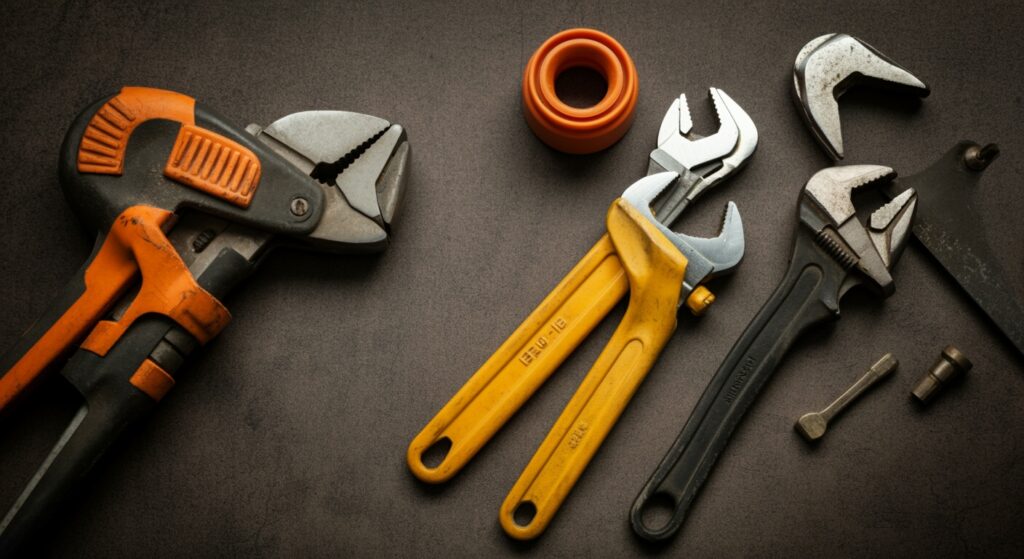If you wish to start a hands-on career that doesn’t run out of demand, plumbing in the US is worth considering. Plumbers install and fix pipes, drains, and essential water systems and help repair and maintain fixtures at homes and businesses. In fact, without them, modern infrastructure would be nothing like it is today.
With the increasing demand for skilled tradespeople, plumbers are no exception. This, in turn, offers them solid job security and great earning potential. So, how to become a plumber in the US? Let’s find out!
How to Become a Plumber in the US?
While it’s obvious that plumbing in the US is rewarding, the path towards the journey is full of ups and downs. It requires time, dedication, and effort, but above all, a deep understanding of the steps along the way. Here’s a simple guide to help you become a plumber in the US:

Educational Requirements
While plumbing isn’t as hard as getting a doctorate, you can’t get around the career path without studying, either. But the good news is you don’t need a college degree to begin. At a minimum, you’ll need a high school diploma or GED and, of course, some specialized training. If you’re wondering about “a plumber school near me,” think about online school as an option!
A solid grasp of subjects like math, science, and technical skills is a huge plus. Knowledge from these subjects comes in handy for tasks like measuring pipes, understanding pressure systems, completing computer-aided drafting, and more.
Folks who wish to pursue plumbing often resort to trade schools and technical colleges. They attend vocational or trade school programs there, covering the basics in 1-2 years. These programs cover topics like plumbing systems, building codes, and safety practices to begin your career.
Apprenticeship for Plumbing
Once you’re through the basics, the next step in your plumbing journey is to enroll in an apprenticeship program. While a high school diploma is usually sufficient, most states require you to do about 4-5 years of apprenticeship before plumbing on your own. Needless to say, it’s a mandatory requirement to earn licensure for plumbing.
During the apprenticeship, you get a mix of classroom learning and on-the-job experience. Simply put, the program requires you to work together with expert plumbers to gain real-world skills for the job. You may find apprenticeships through unions, local contractors, or trade organizations.
Licensing and Certifications for Plumbing in the US
So, how to become a plumber once you’ve completed the apprenticeship? Well, by obtaining a plumbing license.
Licensing Requirements
Each state has its own requirements, so it’s important to check the state-specific rules for licenses. In most cases, you’ll need to gain hands-on experience after apprenticeship and pass an extensive exam to begin practicing. The exam tests your knowledge of safety practices, plumbing codes, and skills you’ve learned over the years.
For instance, in Missouri, you need at least five years of supervised experience before you can apply for a Journeyman Plumber License. Whereas, the Texas State Board of Plumbing Examiners has its own set of prerequisites to allow you to undertake larger projects.
Certifications for Plumbing
After gaining enough experience as an Apprentice, you may pursue certifications to level up in your plumbing career. Typically, you need a Journeyman and then a Master Plumber License to take on complex projects and skyrocket your earning potential. And some states require you to continue your education to stay fully updated with the current trends and codes in the industry!
Career Advancement Opportunities in Plumbing

Now that you know the answer to ‘how to become a plumber,’ the next big question is— how do you advance your career in plumbing? Starting as an apprentice, you can eventually work your way up to journeyman and finally a master plumber. Each level brings more tasks to your table with, quite obviously, a higher pay!
No matter what direction you take, the plumbing industry is brimming with opportunities to help you grow. You may focus on residential plumbing, handle commercial jobs, and even specialize in pipefitting or green plumbing. Even better, the field lets you own your business and even become a plumbing contractor.
As you progress, you can join trade unions or professional organizations to invite networking, growth, and more learning in the field!
Average Salary & Job Outlook for Plumbers
Now that you’ve got the lowdown on plumber education requirements, it’s time to shift focus to what the job market is like for the profession.
Median Salary
According to Glassdoor, the annual median salary for master plumbers in the US is $107,835. Naturally, the salary potential varies depending on factors such as your state, experience, and the areas you specialize in. For journeyman plumbers, the average is slightly lower yet still competitive, between $57,000 to $79,500.
Job Outlook
As for the job outlook, the demand for plumbers is rising, with the world turning towards higher construction and maintenance needs. In fact, according to the BLS, the employment of plumbers is expected to grow by 6% from 2023 to 2033. This makes it a rewarding career path to tap into, especially if the idea of plumbing intrigues you!
Finding Jobs as a Plumber: What is it Like?
Although finding a job as a plumber might appear complex, it doesn’t have to be. Understanding ‘How to become a plumber’ is often the trickiest part of the process. Online job boards, specifically LinkedIn, are fantastic ways to land plumbing positions. Oftentimes, union resources also connect you with employers in your area, while local companies also post jobs on their websites.
When applying, ensure your skills align with the job, and update your CV with all the practical work you’ve done in the field. Don’t forget to highlight relevant skills, certifications, and apprenticeship programs to become a strong candidate for the position.
Here’s Why You Need to Continue Education in Plumbing
Now that you know how to become a plumber and what the job market is like, here’s how continuing your education helps you:
- Since plumbing technology is always evolving, learning lets you stay on top of the market trends, tools, and techniques.
- Most states require annual renewals of your licenses and continuing education to keep your credentials active.
- Plumbing codes may change over time, but continuous education helps you stay on track.
- Green plumbing is becoming a core part of the industry today, so it’s crucial to stay updated with eco-friendly practices.
Is Plumbing School Calling You?
The key steps to becoming a plumber include getting a GED, enrolling in vocational training, and completing an apprenticeship to gain practical experience. Once you pull off a license, you can enjoy serving in different plumbing fields! So, if you’re seeking the answer to ‘how to become a plumber in the US,’ join hands with us to enroll in the best trade school to take the first step ahead already!
